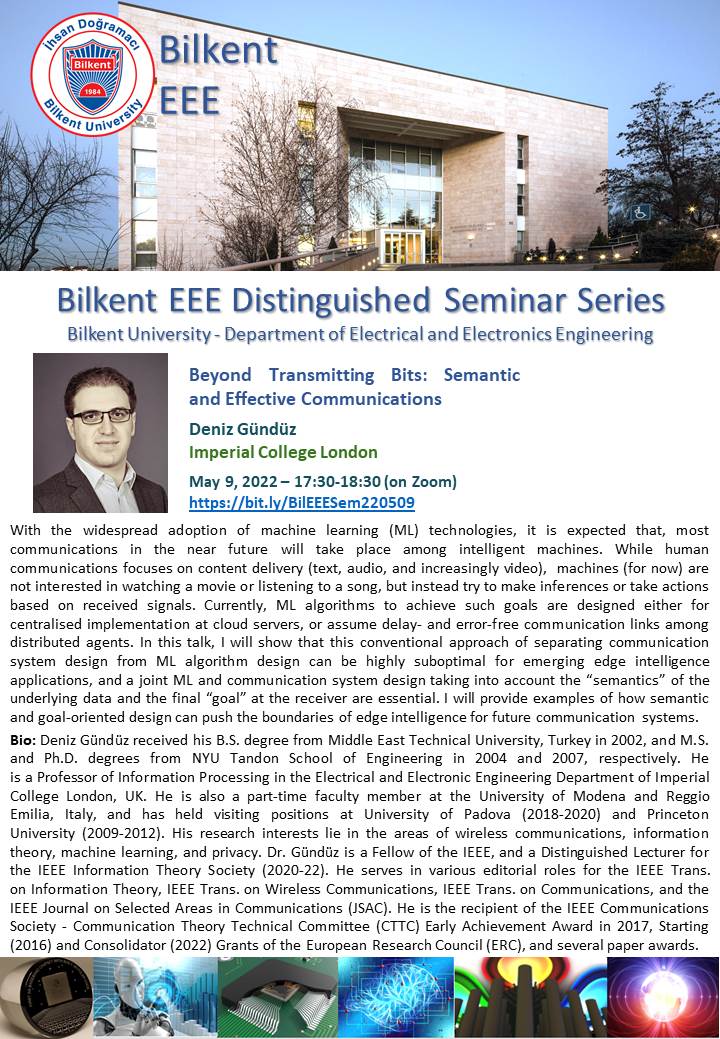
Deniz Gündüz
Imperial College London
Date/Time: May 9, 2022, 17:30-18:30
Beyond Transmitting Bits: Semantic and Effective Communications
With the widespread adoption of machine learning (ML) technologies, it is expected that, most communications in the near future will take place among intelligent machines. While human communications focuses on content delivery (text, audio, and increasingly video), machines (for now) are not interested in watching a movie or listening to a song, but instead try to make inferences or take actions based on received signals. Currently, ML algorithms to achieve such goals are designed either for centralised implementation at cloud servers, or assume delay- and error-free communication links among distributed agents. In this talk, I will show that this conventional approach of separating communication system design from ML algorithm design can be highly suboptimal for emerging edge intelligence applications, and a joint ML and communication system design taking into account the “semantics” of the underlying data and the final “goal” at the receiver are essential. I will provide examples of how semantic and goal-oriented design can push the boundaries of edge intelligence for future communication systems.
Bio: Deniz Gündüz received his B.S. degree from Middle East Technical University, Turkey in 2002, and M.S. and Ph.D. degrees from NYU Tandon School of Engineering in 2004 and 2007, respectively. He is a Professor of Information Processing in the Electrical and Electronic Engineering Department of Imperial College London, UK. He is also a part-time faculty member at the University of Modena and Reggio Emilia, Italy, and has held visiting positions at University of Padova (2018-2020) and Princeton University (2009-2012). His research interests lie in the areas of wireless communications, information theory, machine learning, and privacy. Dr. Gündüz is a Fellow of the IEEE, and a Distinguished Lecturer for the IEEE Information Theory Society (2020-22). He serves in various editorial roles for the IEEE Trans. on Information Theory, IEEE Trans. on Wireless Communications, IEEE Trans. on Communications, and the IEEE Journal on Selected Areas in Communications (JSAC). He is the recipient of the IEEE Communications Society – Communication Theory Technical Committee (CTTC) Early Achievement Award in 2017, Starting (2016) and Consolidator (2022) Grants of the European Research Council (ERC), and several paper awards.